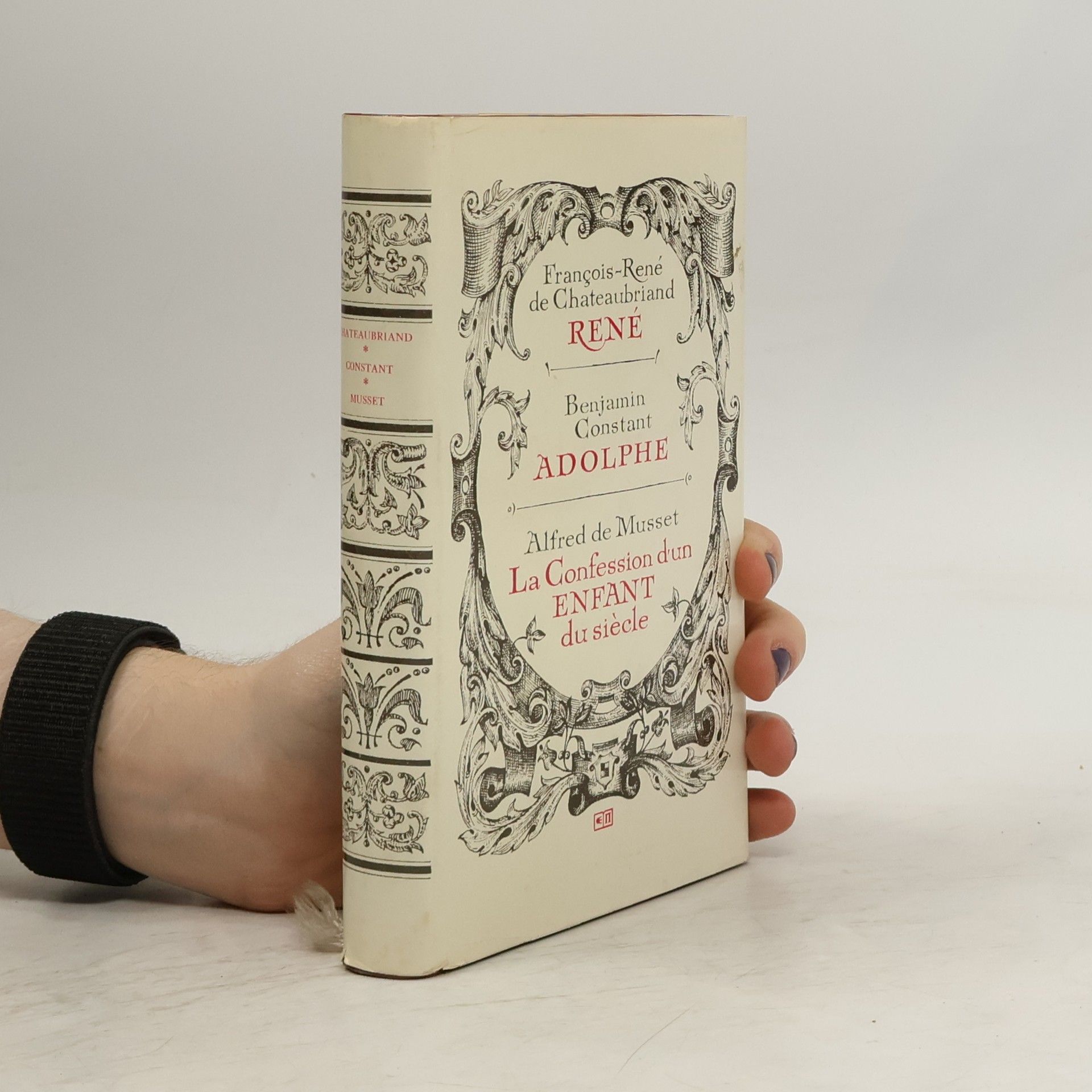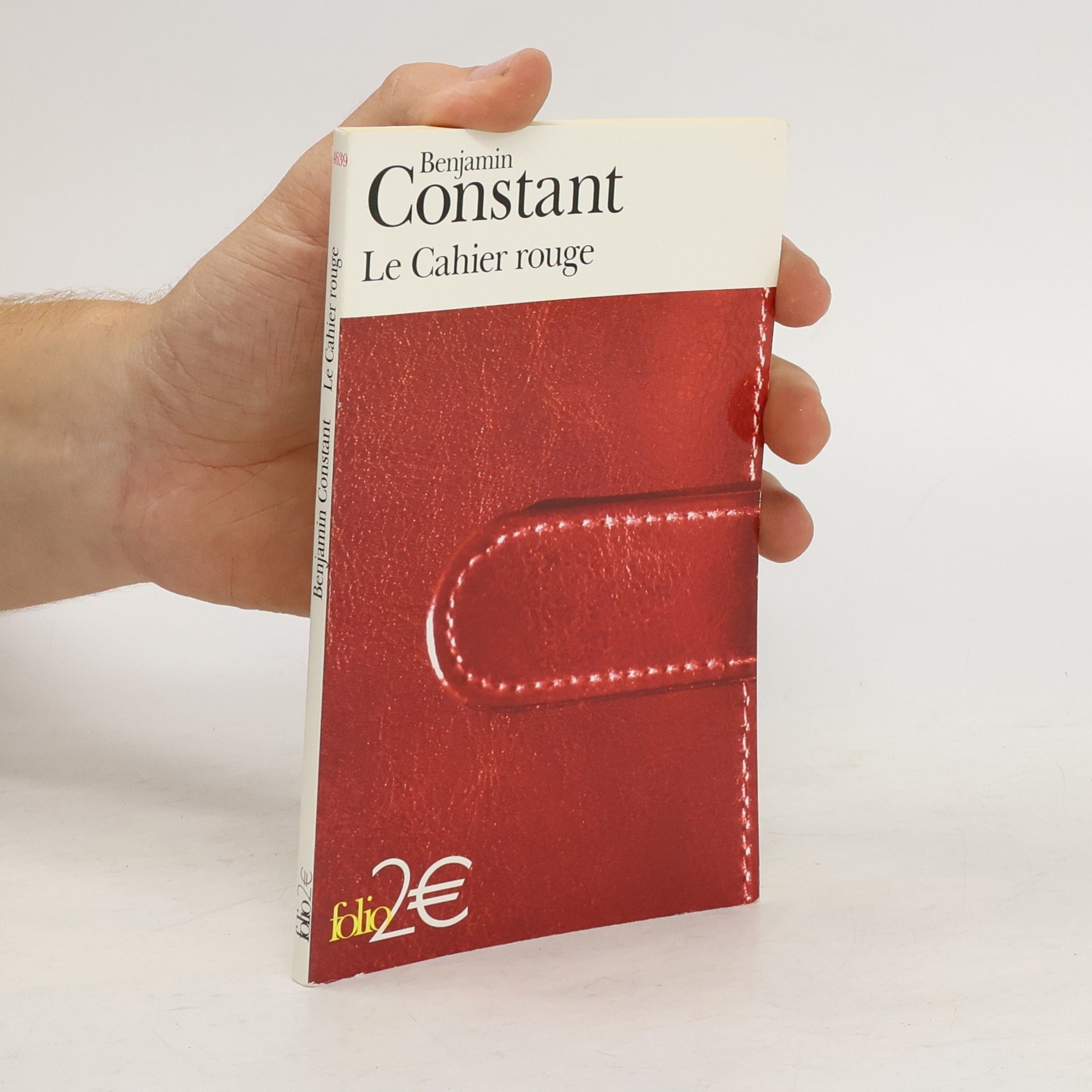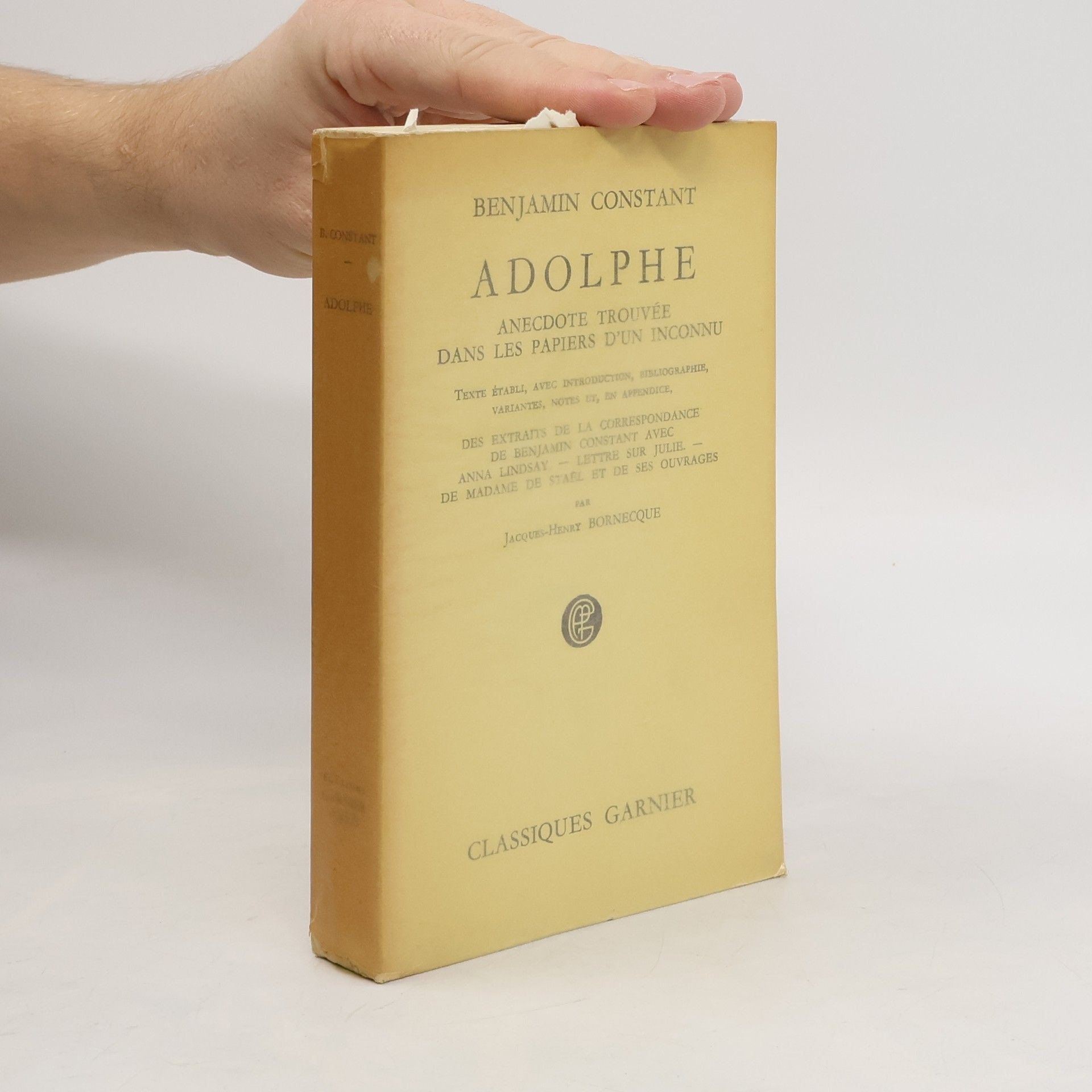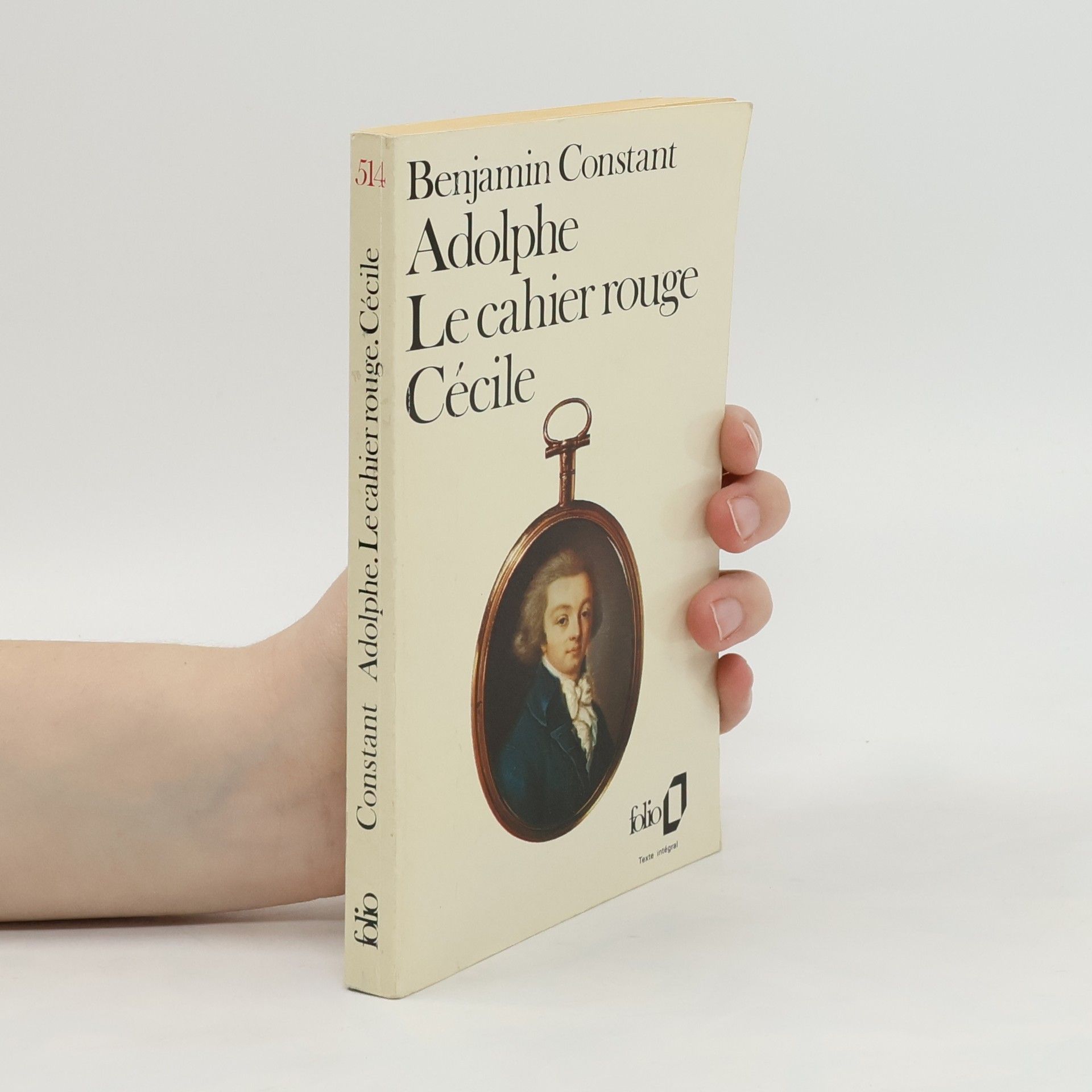Adolphe : Le cahier rouge. Cécile
- 310pages
- 11 heures de lecture
Pris Adolphe ou la première grande histoire d'amour romantique française. Avec cet ouvrage, Benjamin Constant inaugure un long siècle de romantisme, d'amours douloureuses et mortelles.
Constant de Rebecque fut un noble et un penseur dont l'œuvre littéraire et les opinions politiques ont profondément influencé la pensée libérale. Il a exploré la nature de la liberté et de la vie moderne, analysant les tensions entre l'autonomie individuelle et les forces sociétales. Ses écrits se caractérisent par une perspicacité psychologique et politique aiguë, examinant la lutte perpétuelle pour maintenir l'indépendance personnelle dans un monde dynamique.







Pris Adolphe ou la première grande histoire d'amour romantique française. Avec cet ouvrage, Benjamin Constant inaugure un long siècle de romantisme, d'amours douloureuses et mortelles.
"Adolphe, me dit-elle, vous vous trompez sur vous-même; vous êtes généreux, vous vous dévouez à moi parce que je suis persécutée; vous croyez avoir de l'amour, et vous n'avez que de la pitié. " Pourquoi prononça-t-elle ces mots funestes? Pourquoi me révéla-t-elle un secret que je voulais ignorer? Je m'efforçai de la rassurer, j'y parvins peut-être; mais la vérité avait traversé mon âme; le mouvement était détruit; ... et déjà il y avait en moi une pensée que de nouveau j'étais réduit à cacher. "Le drame inévitable qu'est pour chacun l'existence d'autrui" (Gaëtan Picon).
Voyages à travers l'Europe, lectures fiévreuses et désordonnées, découverte de la société et de ses travers, rencontres amoureuses et passionnées... tels sont les premiers pas dans le monde du jeune Benjamin Constant. A l'heure du bilan, l'auteur d'Adolphe pose sur sa jeunesse un regard tendre et amusé.
This 12 th volume gathers all of Constant’s interventions at the French Chamber of deputies from April 1819 to July 1820, after his success at the complementary election of the Sarthe department in March 1819. In his speeches, Constant offers a powerful defense of his political convictions against the conservative turn imposed by successive governments: the liberal Restauration is living its last moments, suffocated by the Ultras’ comeback.
Je parcourais l'Italie, il y a bien des années. Je fus arrêté dans une auberge de Cerenza, petit village de la Calabre, par un débordement du Neto; il y avait dans la même auberge un étranger qui se trouvait forcé d'y séjourner pour la même cause. Il était fort silencieux et paraissait triste; il ne témoignait aucune impatience. Je me plaignais quelquefois à lui, comme au seul homme à qui je pusse parler dans ce lieu, du retard que notre marche éprouvait. Il m'est égal, me répondaitil, d'être ici ou ailleurs. Notre hôte, qui avait causé avec un domestique napolitain qui servait cet étranger sans savoir son nom, me dit qu'il ne voyageait point par curiosité, car il ne visitait ni les ruines, ni les sites, ni les monuments, ni les hommes. Il lisait beaucoup, mais jamais d'une manière suivie; il se promenait le soir, toujours seul, et souvent il passait des journées entières assis, immobile, la tête appuyée sur les deux mains.
Focusing on fundamental political concepts, this work delves into law, sovereignty, and representation, examining the dynamics of power and accountability. It addresses critical issues such as government, property rights, taxation, and the societal impacts of wealth and poverty. Additionally, the text explores the complexities of war and peace, the importance of public order, and the essential freedoms of individuals, including those of the press and religion, offering a comprehensive analysis of political philosophy in the early 19th century.
This riverrun edition publishes Walker's translation and Constant's preface in a new edition here for the first time since 1817
Benjamin Constant de Rebecque se narodil v Lausanne v protestantské rodině a mládí strávil na cestách se svým otcem. Pobýval v Holandsku, Belgii, Německu a Anglii, přičemž v letech 1783–1785 studoval v Edinburghu. Klíčovým momentem jeho života bylo setkání s Mme de Staël v roce 1794. Během císařství musel opustit Francii, ale vrátil se v roce 1816, kdy se stal vůdcem liberální opozice jako poslanec. V tomto roce také vydal psychologický román Adolphe, který předznamenal romantismus. Mezi jeho nejvlivnější politické práce patří protinapoleonský pamflet De l’esprit de conquête et de l’usurpation (1814), Principes de politique z roku 1815 a slavná přednáška De la liberté des Anciens comparée à celle des Modernes (1819). Nový pohled na Constantovo politické myšlení přineslo vydání rukopisné verze Principů politiky z roku 1806 v roce 1980. Tato verze obsahuje zásady, které autor později rozvinul a obhajoval v politice. Constant se zde kriticky vyrovnává s Rousseauem a navazuje na ekonomickou teorii Adama Smithe, reflektuje dopady Francouzské revoluce na politické myšlení. Rukopisná verze potvrdila jednotu Constantova myšlení a jeho význam pro klasický liberalismus, jehož je dnes považován za předního představitele. Tento svazek obsahuje první český překlad rukopisné verze Principů politiky.